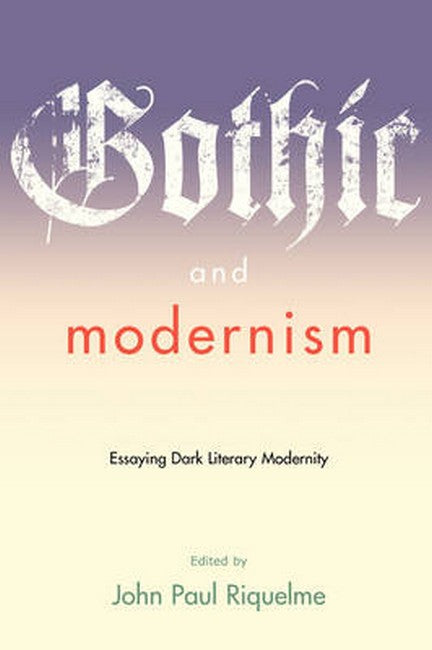Gothic and Modernism establishes and interprets the significantpresence and the transformations of the Gothic tradition at the dark heart of writing during the long twentieth century. Artfully introduced and collected by John Paul Riquelme, the essaysnine previously published in Modern Fiction Studiesreveal challenges to both realism and to optimistic Enlightenment attitudes in the narratives and the styles of writers ranging from Oscar Wilde and Virginia Woolf to Samuel Beckett, Octavia Butler, and Bret Easton Ellis. In examining nineteenth-century works and popular dark writing of the twentieth century, the contributors elucidate literary modernism's relationship to nineteenth-century Gothic traditions, effectively extending the chronological and conceptual boundaries of the former and challenging the propriety of the barrier between high and popular forms of literature. Through compelling readings of a range of modern works, they reveal the aestheticizing of the Gothic, its parodic, culturally critical tendencies, its relation to language, literary form, and time, and its response to technological threats and promises. From canonical modernism to more popular forms, such as detective fiction, science fiction, and pornohorror, this wideranging and accessibly written collection offers an overview of Gothic writing's persistent influence on modern works. Contributors: Penny Fielding, University of Edinburgh; Graham Fraser, Mount Saint Vincent University; Theodora Goss, Boston University; Ruth Helyer, University of Teesside; Susan Kollin, Montana State University; Patrick R. O'Malley, Georgetown University; John Paul Riquelme, Boston University; Charles J. Rzepka; Boston University; Paul K. Saint-Amour, University of Pennsylvania; Joseph Valente, University of Illinois

